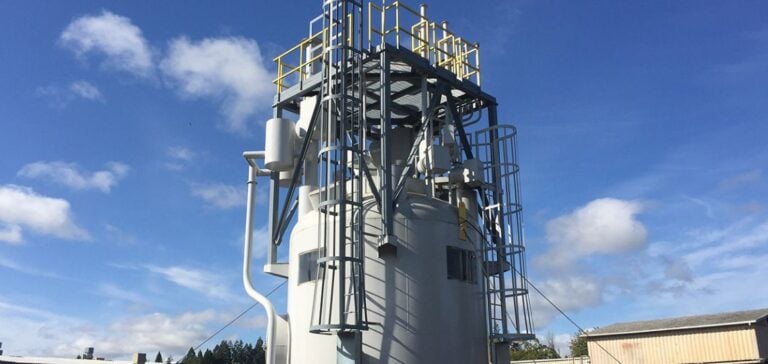The United States is actively supporting the deployment of RMS in Ghana through a series of agreements, training initiatives and industry partnerships. These efforts, facilitated by the FIRST (US Foundational Infrastructure for the Responsible Use of Small Modular Reactor Technology) program, aim to establish Ghana as a regional hub for SMRs and to foster the development of a safe and secure supply chain for SMRs in Africa. The recent meeting of the Africa Nuclear Business Platform in Accra was marked by the announcement of two key arrangements that represent important steps towards achieving these objectives. A Memorandum of Understanding (MoU) and contractual arrangements have been signed between GAEC (Ghana Atomic Energy Commission), the International Science and Technology Center and NuScale for the supply of a NuScale Energy Exploration (E2) center and associated services to GAEC.
NuScale E2 Center: A game-changer for SMR training
The deployment of a NuScale E2 center in Ghana will be the first of its kind on the African continent. These centers use computer modeling in a control room simulator for a VOYGR-12 SMR power plant, giving users hands-on experience of applying the principles of nuclear science and engineering through simulated nuclear power plant operating scenarios. The creation of an E2 center in Ghana will serve as a crucial tool to prepare the workforce for the deployment of SMRs, not only in Ghana but also in the wider African region. This initiative is aligned with the International Atomic Energy Agency’s (IAEA) phased approach and non-proliferation standards, reinforcing Ghana’s position as a regional education and training hub for safe and secure civil nuclear deployments in Africa.
Regional welding certification program: Developing a skilled workforce
In addition to the E2 center, a memorandum of understanding for a regional welding certification program has been signed between GAEC and the International Science and Technology Center. Funded by the FIRST program, this certification program will provide essential training and a unique skill set to Ghanaian technicians, enabling them to qualify for jobs in nuclear power construction. The welding certification program is a crucial step in establishing Ghana as part of a safe and secure supply chain for SMRs in the region. By developing a skilled workforce, Ghana can attract investment and contribute to the growth of the RMS industry in Africa.
Developing an industrial enclave: NuScale’s SMR as the main energy source
The government of Ghana, through Nuclear Power Ghana, is also working on a cooperation agreement with project developer Regnum Technology Group LLC to develop an “industrial enclave” that will use a NuScale SMR nuclear power plant as its main source of energy. The US government has expressed its strong support for the deployment of NuScale’s technology through Regnum Technology Group as a project developer in Ghana, and looks forward to the conclusion of this agreement.
Peaceful nuclear cooperation agreement between the United States and Ghana
To further strengthen the partnership between the USA and Ghana in the nuclear energy sector, the two countries are currently negotiating a peaceful nuclear cooperation agreement, also known as the 123 Agreement. This agreement is necessary for the USA to be able to trade nuclear goods and services with Ghana, and its conclusion will enable closer cooperation in this important area.
Recent announcements and agreements demonstrate the United States’ commitment to supporting the deployment of RMS in Ghana, and to making the country a regional hub for RMS. By providing training and certification programs, as well as industrial partnerships, the USA is helping Ghana to develop a skilled workforce and attract investment in the RMS sector. These efforts build on the 2022 strategic collaboration between the U.S., Japan and Ghana, which aimed to support SMR deployment and job creation through workforce development. As negotiations for a peaceful nuclear cooperation agreement between the USA and Ghana progress, the future of SMR deployment in Ghana and the wider African region looks promising, with the potential to stimulate economic growth and provide clean, reliable energy for years to come.






















